#Mohammed Bakri
Explore tagged Tumblr posts
Text
Jenin, Jenin (2002), dir. Mohammed Bakri
81 notes
·
View notes
Text

2 notes
·
View notes
Text
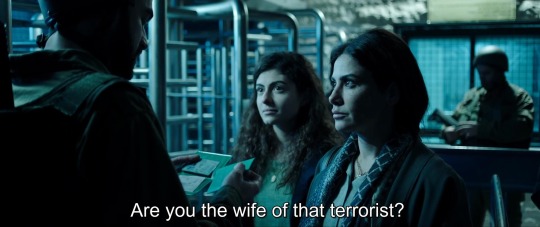
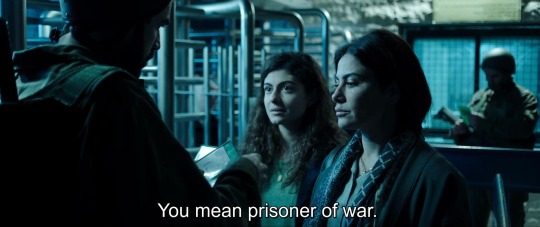
أميرة [Amira] (Mohamed Diab, 2021)
#أميرة#Mohamed Diab#Amira#Palestine#فلسطين#פלשתינה#Israeli occupation#Gaza Strip#West Bank#resistance#liberation#Palestinian society#Tara Abboud#Saba Mubarak#Ali Suliman#Ziad Bakri#Waleed Zuaiter#Saleh Bakri#Kais Nashef#middle east cinema#2020s movies#segregation#apartheid#freedom#drama film#occupied territories#Arab people#Middle East#SWANA#love
23 notes
·
View notes
Text




From the documentary, “Jenin, Jenin,” 2002 (Directed by Mohammed Bakri)
This documentary was filmed 22 years ago and yet every scene is still applicable to what’s happening in Jenin today.
#free palestine#gaza genocide#palestine genocide#free gaza#palestine#gaza strip#israel#gaza#am yisrael chai
64 notes
·
View notes
Text
5 documentaries to watch on Falasteen!

GAZA (Garry Keane & Andrew McConell)
1948 : Creation & Catastrophe (Ahlam Muhtaseb & Andy Trimlett)
Tantura (Alon Schwarz)
Jenin, Jenin (Mohammed Bakri)
Gaza Fights for Freedom (Abby Martin)
6 notes
·
View notes
Text

Fernand Iveton at the time of his arrest: the police officers who arrested him deliberately soiled his clothes and disheveled his hair, even though he was always impeccable, surely in order to begin discrediting him in the press
Fernand and Helene Iveton a couple in the algerian revolution part V : the end of Fernand Iveton
We have seen here the condemnation to death of Fernand Iveton and its consequences. Even in prison, Fernand continues to write letters to Hélène, and Jean Claude also sent a letter from mainland France to President René Coty requesting clemency for his father-in-law. He often talks with Bakri. In one of his notebooks, Fernand has drawn a sickle and hammer. He inscribed the date of his death sentence, November 14, 1956, and is waiting to mark the date he is pardoned. He befriends the prison chaplain, Jules Declerq, who is intrigued by the fact that a European is condemned to death for his independence activities. The chaplain later explained that he wholeheartedly supports Algerian independence but must keep his feelings quiet due to his public role. This doesn't prevent him from offering the prisoner a gift: "Les Misérables." He also promises to visit his wife’s home because Fernand is worried about her, knowing that despite her hiding it from him, she is in significant financial difficulty.
Lawyer Joé Nordmann reports that there are finally petitions and telegrams demanding his clemency from Parisian women, the gas workers of Rue d'Aubervilliers, the CGT section, etc. On the other hand, the press and intellectuals are silent. L'Humanité (the newspaper of the French Communist Party) eventually mentions him but only in a few lines inside the paper. Emmanuel Roblès, a prominent French writer born in Algeria and a close friend of the famous Algerian author Mouloud Feraoun (who would be assassinated on March 15, 1962, along with Education Inspector Max Marchand, Ali Hamoutène, Salah Ould Aoudia, Etienne Basset, and Robert Aymar by the OAS), urged Camus to try to help Fernand Iveton. Camus did nothing, at least publicly.
There is also a letter sent to Guy Mollet for make protest about the torture (authorized, as Massu would say years later to journalist Florence Beaugé, by government members like Max Lejeune and Maurice Bourgès-Maunoury, who visited interrogation centers and encouraged torture, even though these two politicians claimed they had nothing to do with it). On January 14, Bakri is released and hugs his two colleagues before leaving. He is replaced by another prisoner named Zamoun.
Abdelkader Guerroudj, known as Djilali, and Jacqueline Guerroudj are arrested. In an attempt to save Fernand Iveton, Jacqueline confesses her role and confirms that he had no intention of killing anyone. The Battle of Algiers intensifies, with events like the eight-day strike (January 28, 1957 - February 4, 1957), during which the army commits new atrocities to break the strike: forced store openings, looting authorizations, and new arbitrary arrests of Algerians.
A new prisoner, Mohamed ben Hamadi el Haziz, who asks to be called Abdelaziz, arrives. He is an Iraqi who came to Algeria to fight for the revolution. He was captured after being wounded in combat and has just been sentenced to death by the military tribunal. He announces this sentence calmly. Fernand also shares his story with him.
President René Coty receives Fernand Iveton’s three lawyers, as required by French procedure at the time. Before deciding whether to use presidential clemency, the president must listen to the defense lawyers, Albert Smajda, Charles Lainné, and Joe Nordmann, who speak of the parody of justice that is unfortunately common in the military tribunal and the toxic atmosphere. René Coty agrees that the sentence was disproportionate and even acknowledges the courage and certain nobility in Fernand Iveton but stresses that public opinion wants Fernand Iveton’s death and that, given the increasing violence in Algiers, the pieds-noirs will want his head. He also recalls a chilling anecdote from 1917 when, as a young officer, he saw two young French soldiers executed. As one of them was being led to the execution post, the general said to him, "You too, my boy, are dying for France."
Albert Smajda realizes that his client will not be pardoned. Joe Nordmann protests to the president with clear and lucid arguments that this execution will not diminish the will of Algerian revolutionaries to continue fighting and that blind violence solves nothing. He also shares an anecdote: Iveton was insulted by one of the guards, and he retorted that he was in this situation for him. This ensures that Fernand is fighting for an Algeria where there will be equality and happiness for all. Smajda produces a letter signed by Hélène for the president, while Lainné insists that Fernand should be a witness to the torture he endured. Coty says it is indeed disgraceful that he suffered such treatment, but this treatment had already been applied to many activists both before and throughout the Algerian revolution.
On February 6, the Supreme Council of the Judiciary reviews the case again. However, François Mitterrand, the Minister of Justice, is the last to vote before René Coty makes his decision. The man who would later be known as the president who abolished the death penalty in France opposes clemency and favors executions (at least 32 out of 45 executions). He likely does this for political calculation to keep his position and provide guarantees in hopes of securing a post.
On Saturday, Chikhi is freed. He shakes hands with Abdelaziz and hugs Fernand, thanking him for what he did for Algeria. A few hours later, a newcomer named Achouar arrives. He is 20 years old, was arrested during the fighting, and demands prisoner-of-war status. He also shares his story.
Fernand is convinced he will be pardoned. Then, a few days later, while he is sleeping, the guards come and tell him to get up immediately. Abdelaziz understands right away, unlike Achouar, who looks lost. When Fernand understands, he wants to address his cellmates one last time. The guards take him immediately. Despite everything, Fernand stands tall and shouts "Tahia el Djazair" (long live Algeria) as other condemned prisoners do when going to execution. A guard tells him to be quiet and raises his baton to his height. Too late, as other Algerian prisoners, who usually witness the execution and immediately understand what is happening, start shouting, singing in Arabic, singing patriotic songs, others bang the cell walls with their bowls and spoons, and women make youyou. The prisoners do this to accompany the independence militants to death so they do not falter. Soon, other Algerians in the nearby streets, alerted by the noise, join in the chants and youyou. Despite the guards' attempts, the support demonstrations do not weaken. When the clerk asks if Fernand has anything to say, he first asks for pants. Then he says for the clerk to note, "The life of a man, mine, matters little. What matters is Algeria, its future. I am convinced that the friendship between French and Algerians will be restored."
Two other FLN militants, often forgotten, will be executed with him: Mohamed Lakhnèche, known as Ali Chaflala, and Mohamed Ouenouri, known as P'tit Maroc. The three condemned men walk to the guillotine and embrace. One of them says, "Iveton, my brother." Charles Lainné also embraces him and says he is dying because of public opinion. Fernand repeats three times, "Public opinion." Declerq is there and asks if he needs religious assistance. Fernand tries to smile and replies, "No... Freethinker." The guards tie his hands behind his back, and Fernand murmurs that he will die, but Algeria will be independent. The Casbah joins in the cries and patriotic songs. Lainné kneels and prays for Fernand, while Albert Smajda sobs and looks at the wall to avoid seeing what is about to happen.
Despite his support for French Algeria,the executioner, Fernand Meysonnier says that Fernand Iveton shows great courage and almost regrets the task he is about to perform (he would only have such regrets three times in his career of executioner, according to him).
On February 11, 1957, at 5:10 am, Fernand Iveton is guillotined more by "the spirit of the times than by his act," to use Albert Camus's words, and his execution is condemned by Jean-Paul Sartre in "Les Temps Modernes" in 1958: "We are all murderers."
The next and final part will be the epilogue. But I must say one thing. When you think that François Mitterrand (and the government in power) made films criticizing the Montagnards of the French Revolution for the guillotine, I find it very misplaced on his part because, as we have just seen, he did far worse than they did.
6 notes
·
View notes
Text
[11/27, 10:32 PM] Pray for the Prophet "peace be upon him": My future plans are to leave Gaza and get treatment for the eye and nerve problems that I suffered from because of the barbaric war 💔😭 and education for us I want to graduate so that I can support my family in the future because my father has become old and suffers from a cartilage in his back I want to escape this war and help my family escape this nightmare and give them a safe and happy life
11/27, 10:35 PM] Pray for the Prophet "peace be upon him": Before October 7th we were living a normal life
I was studying at university with my younger and older sister who was besieged in northern Gaza with her child and her husband who was a martyr and now she is with us and I work after my university and my younger sisters are at school and our life is happy but when she came we lost everything
I started suffering from nerve problems and problems with my eyes and we lost our education and work
11/27, 11:07 PM] Pray to the Prophet "peace be upon him": We have lost everything, our home, our education 💔😭😭 Our future The only thing I have not lost is our life I am afraid I put my hope in your hands and I beg you to help me escape this suffering before it is too late
[11/27, 11:20 PM] Pray to the Prophet "peace be upon him": Costs / We need an amount of 115 thousand euros to cover our needs for travel, eye and nerve treatment, education and the necessities of life as follows Details //
1. The cost of exiting the Rafah land crossing, paying between ($7,000 to $1,000) to facilitate our exit to Egypt
2. Securing a small amount of living expenses while we settle in and receive treatment
3. Daily we need food and drink between ($150 to $300)
4. We need medication treatments between ($400 to $1,200) depending on the case
5. Shelter approximately $1300
6. Blankets and essentials from ($200 to $450)
7. Commission for transferring the site with a bank and deducting the external transfer to us.
Note: These estimates are approximate based on the needs of 9 people.
Note: The market will document the delivery of the money to Yassin and his family through a video and pictures and publish it here and YouTube.
Thank you all, I love you all.
2 notes
·
View notes
Note
Hello! I hope everything is going well! I want to ensure diversity in my rp and I was wondering if you had any Palestinian fc recs? I have some ( like Michael Malarkey and Yasmine Al-Bustami ) but I wanted more in case someone asks for alt fcs. Any age range and gender identity since bios are written so the player can choose. If it helps, they're suggested to be a biochemist. Thank you!
Waleed Zuaiter (1971) Palestinian.
Maysoon Zayid (1974) Palestinian - has Cerebral Palsy.
Mousa Kraish (1975) Palestinian.
May Calamawy (1986) Jordanian, Palestinian / Egyptian.
Dina Shihabi (1989) Palestinian, Saudi Arabian / Norwegian, German and Haitian.
No resources at time of posting - resources makers I'm begging you!
Manal Khader (1968) Palestinian.
Shokran Mortga (1970) Palestinian / Syrian.
Ramsey Nasr (1974) Palestinian / Dutch.
Saba Mubarak (1976) Palestinian / Jordanian.
Saleh Bakri (1977) Palestinian.
Tamer Nafar (1979) Palestinian.
Ramzi Maqdisi (1980) Palestinian.
Ziad Bakri (1980) Palestinian.
Nesreen Tafesh (1982) Palestinian / Algerian, Amazigh Moroccan.
Yasmin Raeis (1985) Palestinian / Egyptian.
Waseem Khair (1986) Palestinian.
Faris Badwan (1986) Palestinian / English.
Adam Bakri (1988) Palestinian.
Rakeen Saad (1989) Palestinian.
Azza Zarour (1989) Palestinian.
Mohammed Assaf (1989) Palestinian.
Nicolas Jaar (1990) Chilean [Palestinian / French].
Fai Khadra (1991) Palestinian.
Maryam Abu Khaled (1991) Afro Palestinian.
Motaz Malhees (1992) Palestinian.
Nemahsis (1994) Palestinian.
Gazini Ganados (1995) Palestinian and Bisaya Filipino.
Reem Amara (1995) Palestinian, Jordanian.
Dana Dajani (?) Palestinian.
Sarah Agha (?) Palestinian, Syrian, Irish, Scottish.
🇵🇸❤️
3 notes
·
View notes
Text
-Jenin, Jenin documentary by/Mohammed Bakri.🇵🇸
3 notes
·
View notes
Text
youtube
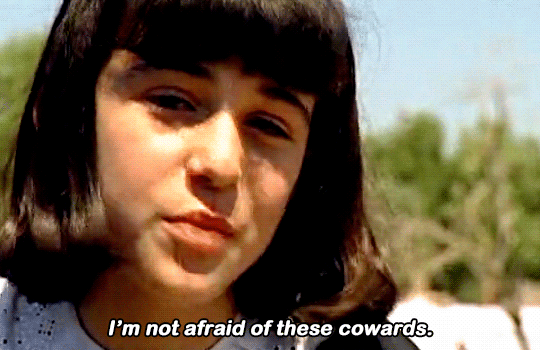
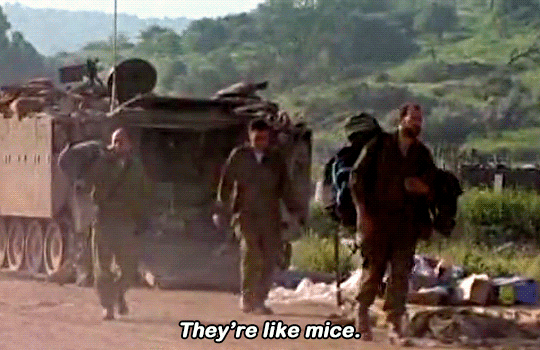

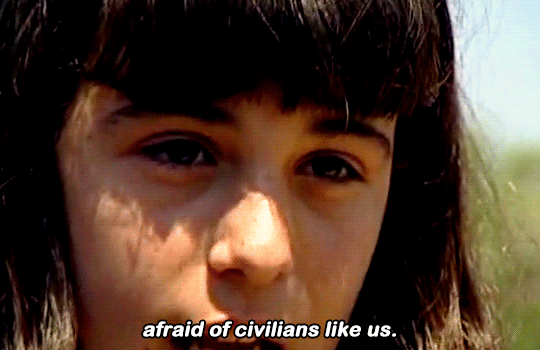
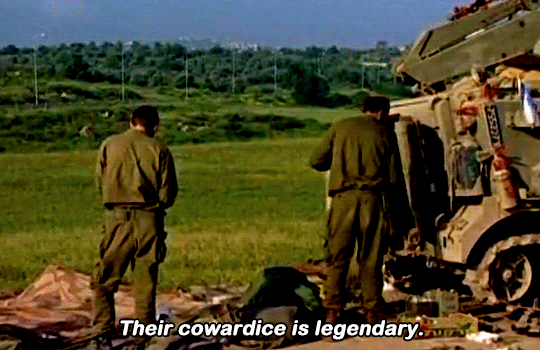

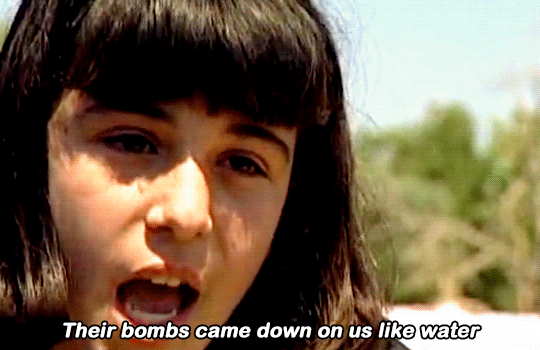

JENIN, JENIN (2002) dir. Mohammad Bakri
10K notes
·
View notes
Text
Jenin, Jenin on Letterboxd https://boxd.it/6o8Y
Me dejó pésimo
0 notes
Text


أميرة [Amira] (Mohamed Diab, 2021)
#أميرة#Mohamed Diab#Amira#Palestine#فلسطين#פלשתינה#Israeli occupation#Gaza Strip#West Bank#resistance#liberation#Palestinian society#Tara Abboud#Saba Mubarak#Ali Suliman#Ziad Bakri#Waleed Zuaiter#Saleh Bakri#Kais Nashef#middle east cinema#2020s movies#segregation#apartheid#freedom#drama film#occupied territories#Arab people#Middle East#family#love
8 notes
·
View notes
Text
Bologna: 3-8 ottobre a Teatri di Vita, "Nakba" Enrico Frattaroli affronta la memoria della "catastrofe" della Palestina
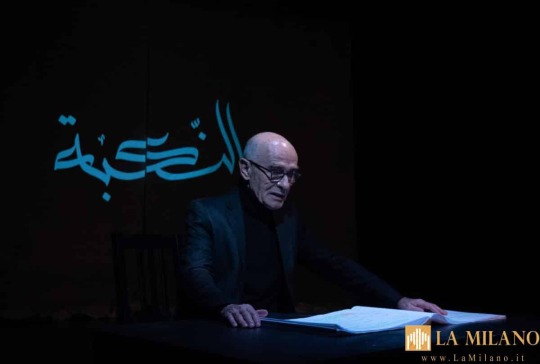
Bologna: 3-8 ottobre a Teatri di Vita, "Nakba" Enrico Frattaroli affronta la memoria della "catastrofe" della Palestina. Si chiama "Nakba", ovvero "catastrofe", ed è il grande punto di svolta della storia della Palestina e del Medio Oriente, quando nel 1948, con la creazione dello Stato di Israele, migliaia di palestinesi furono costretti ad abbandonare le proprie case, le città e le terre, per scappare nei campi profughi. Una tragedia della pulizia etnica che si ripete in questi giorni con la fuga degli armeni dal Nagorno-Karabakh, e che è alla base dell'instabilità dei territori palestinesi, tuttora sotto occupazione militare e senza riconoscimenti dei diritti. A raccontare tutto questo è lo spettacolo di Enrico Frattaroli, protagonista della grande stagione delle avanguardie teatrali, interpretato da Franco Mazzi: "Nakba - I nostri occhi sono i nostri nomi", ovvero "XX calligrammi per la Palestina", tratto dal romanzo autobiografico "Testimone oculare" di Muhammad Al-Qaysi, che fu tra i fuggitivi con la famiglia all'età di 4 anni. L'appuntamento è Teatri di Vita (via Emilia Ponente 485, Bologna; tel. 333.4666333; teatridivita.it), da martedì 3 a domenica 8 ottobre, alle ore 21 (sabato ore 20, domenica ore 17). La musica è del Trio Joubran, la dizione poetica in lingua araba e canto mawwal di Samia Qazmuz Bakri, il tema al flauto palestinese di Mohamed Al-Zamel, gli interventi in audio del soprano Patrizia Polia e del basso Federico Benetti, e la calligrafia araba di Amjed Rifaie. Lo spettacolo "Nakba - I nostri occhi sono i nostri nomi", presentato in collaborazione con Assopace Palestina, e prodotto in collaborazione con il Centro di Produzione Florian Metateatro, è all'interno della stagione "La rabbia", realizzata con il contributo del Comune di Bologna, della Regione Emilia Romagna e del Ministero della Cultura. Nakba in arabo significa "catastrofe" e indica gli eventi che nel 1948 hanno portato alla creazione dello Stato d'Israele e il doloroso esodo di migliaia di palestinesi dalle loro terre, trasformati in profughi, ai quali Israele nega ogni diritto, tra cui il "diritto al ritorno" sancito dalla risoluzione 194/1948 delle Nazioni Unite. A questa pagina della Storia, che condiziona tuttora la vita di milioni di persone e l'equilibrio geopolitico, Enrico Frattaroli dedica uno spettacolo-testimonianza in musica, immagini, parole e grafia, a partire dalla testimonianza di Muhammad Al-Qayasi, profugo a soli 4 anni dal suo villaggio di Kafr'Ana, vicino Giaffa, diventando portavoce di una storia d'esilio che accomuna tutto il popolo palestinese. Il tema esistenziale, sociale e politico dell'opera autobiografica di Al-Qayasi diventa un intenso momento teatrale, cheFrattaroli allestisce in venti stazioni di racconto poetico: "una partitura le cui dimensioni testuali, musicali, visive e teatrali si integrano quali gradi di libertà, di verità, di uno stesso spazio compositivo" scrive Frattaroli: "Il popolo palestinese è, per propria cultura, un popolo poetico" e i suoi scrittori "restano poeti, restano umani anche negli scritti in cui denunciano la disumanità e l'orrore dei crimini subiti e che continuano a subire". L'interpretazione di Franco Mazzi è accompagnata dalle musiche del Trio Joubran, il più celebre ensemble palestinese, mentre alle spalle dell'attore compaiono le parole arabe nella loro più suggestiva dimensione calligrafica, alternata a immagini che richiamano la tragedia. Franco Cordelli sul "Corriere della sera" lo ha definito "uno spettacolo che non ha precedenti". Enrico Frattaroli ha attraversato la grande stagione dell'avanguardia romana con Giuliano Vasilicò, Memè Perlini, Giancarlo Nanni. Artista indipendente e autore di diverse opere teatrali, acustiche e audiovisive tra cui spiccano il lungo lavoro sull'opera di Joyce e il lustro di produzioni sull'opera del Marchese di Sade (nel 2010 ha portato a Teatri di Vita il suo folgorante "Sade: opus contra naturam"), definisce il suo teatro essenzialmente poetico, in cui la scrittura si offre come partitura organica per altre dimensioni: musicale, spaziale e visiva.... #notizie #news #breakingnews #cronaca #politica #eventi #sport #moda Read the full article
1 note
·
View note
Text
Jenin again
We post this article from Counterpunch The Meaning of Jenin by Jeffrey St. Clair sent in by a WBT reader. As long ago as 2009, Justice for Palestine in Brisbane showed a film Jenin Jenin by Mohammed Bakri about Israel devastation of the Jenin refugee camp on the West Bank in Palestine. After the making of the film, the film’s producer, Iyad Samudi, was shot dead by Israel military. The film…
View On WordPress
0 notes
Text
Egypt media tycoon Mohamed El-Amin dies in prison
Egypt media tycoon Mohamed El-Amin dies in prison
Yesterday, Egyptian media mogul Mohamed Al-Amin, who was serving a three-year term for human trafficking and sexual misbehaviour, died of cancer in prison. Mustafa Bakri, a journalist, tweeted the news of the 62-year-passing, old’s stating he had been transported to Al-Salam International Hospital in Cairo from Wadi El-Natrun Prison a few months prior. Last year, Al-Amin was accused of sexually…

View On WordPress
0 notes
Note
hey sweeties <3 could you give me recs for mena 30+ male fcs, please? thank you so much
Mo Gallini (1966) Lebanese / Cuban.
Rabih Mroué (1967) Lebanese.
Payman Maadi (1970) Iranian.
Waleed Zuaiter (1971) Palestinian.
Omar Metwally (1974) Egyptian / White - has spoken up for Palestine!
Peter Macdissi (1974) Lebanese - is gay.
Piter Marek (1974) Lebanese.
Mousa Kraish (1975) Palestinian.
Haaz Sleiman (1976) Lebanese - is gay - has spoken up for Palestine!
Kayvan Novak (1978) Iranian - has spoken up for Palestine!
Omid Abtahi (1979) Iranian.
Khalid Abdalla (1980) Egyptian - has spoken up for Palestine!
Ramzi Maqdisi (1980) Palestinian.
Arian Moayed (1980) Iranian - has spoken up for Palestine!
Tahar Rahim (1981) Algerian - has spoken up for Palestine!
Kaan Urgancıoğlu (1981) Turkish - has spoken up for Palestine!
Rami Malek (1981) Egyptian.
Michael Stahl-David (1982) 1/4 Syrian.
Davood Ghadami (1982) Iranian / White.
Riz Ahmed (1982) Pakistani - has spoken up for Palestine!
Amir Eid (1983) Egyptian - has spoken up for Palestine!
Michael Malarkey (1983) Palestinian, Italian-Maltese / White.
Marwan Kenzari (1983) Tunisian / White.
Elyes Gabel (1983) Algerian, Anglo-Indian, White.
Emun Mohammadi (1983) Iranian / White.
Mohamed Emam (1984) Egyptian - has spoken up for Palestine!
Firass Dirani (1984) Lebanese - has spoken up for Palestine!
Burak Özçivit (1984) Turkish - has spoken up for Palestine!
Zahid Ahmed (1984) Pakistani.
Sami Zayn (1984) Syrian - has spoken up for Palestine!
DJ Snake (1986) Algerian / French - has spoken up for Palestine!
Kaan Yildirim (1986) Turkish - has spoken up for Palestine!
David Avery (1986) Cypriot with some Egyptian.
Saagar Shaikh (1986) Pakistani - has spoken up for Palestine!
Mustafa Ali (1986) Pakistani - has spoken up for Palestine!
Asim Chaudhry (1986) Pakistani - has spoken up for Palestine!
Guz Khan (1986) Pakistani - has spoken up for Palestine!
Oliver Jackson-Cohen (1986) Egyptian Jewish / English.
Karim Kassem (1986) Egyptian / Egyptian Jewish - has spoken up for Palestine!
Lowkey (1986) Iraqi / White - has spoken up for Palestine!
Kerem Bürsin (1987) Turkish - has spoken up for Palestine!
Wesam Keesh (1987) Syrian.
Eyad Hourani (1988) Palestinian.
Hamed Sinno (1988) Lebanese-Jordanian - is gay - has spoken up for Palestine!
Adam Bakri (1988) Palestinian.
Parker Young (1988) 1/4 Pakistani.
Shazad Latif (1988) Pakistani and White.
Ryan Malaty (1989) Egyptian / White.
Pierre Niney (1989) Egyptian Jewish.
Zeeko Zaki (1990) Egyptian.
Adeel Akhtar (1990) Pakistani / Kenyan.
Darío Yazbek Bernal (1990) Mexican and Lebanese.
Azim Rizk (1990) Tunisian, Irish, and possibly Egyptian.
Michael Vlamis (1990) Lebanese and White.
Amir El-Masry (1990) Egyptian - has spoken up for Palestine!
Ramy Youssef (1991) Egyptian - has spoken up for Palestine!
Jade Hassouné (1991) Lebanese - has chosen not to label his sexuality.
Ali Burak Ceylan (1991) Turkish - has spoken up for Palestine!
Motaz Malhees (1992) Palestinian.
Fahd Bassem (1992) Yemeni.
Burak Çelik (1992) Turkish - has spoken up for Palestine!
Ghali (1993) Tunisian - has spoken up for Palestine!
Fady Elsayed (1993) Egyptian.
Here you go!
6 notes
·
View notes